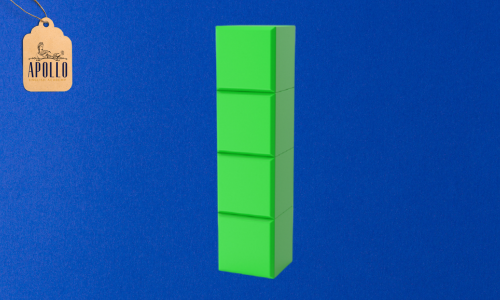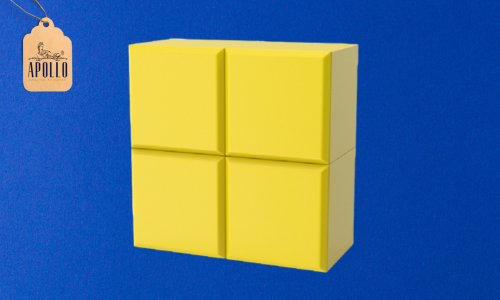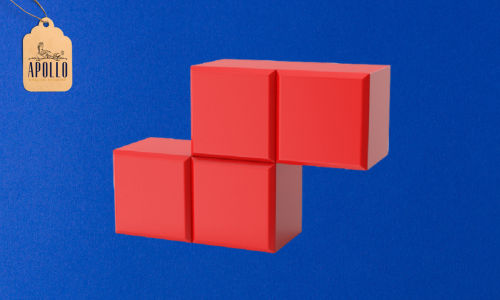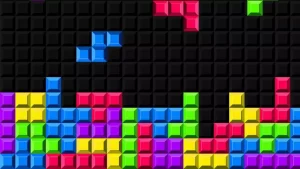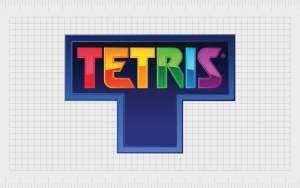Introdução
Essa semana comemoramos o Dia do Tetris, o jogo que conquistou gerações com seus bloquinhos coloridos e desafiadores. Mas Tetris é mais do que um passatempo. Ele é também um exercício para o cérebro. E se a gente te dissesse que esse clássico dos videogames tem tudo a ver com aprender inglês? No texto de hoje, conectamos o mundo dos jogos com o aprendizado de idiomas para mostrar como, às vezes, tudo que você precisa é encaixar as peças certas.
📖 Aqui você encontra…
Nível:
B1 (Intermediário)
Objetivo:
Explorar paralelos entre jogos e aprendizado de inglês, usando o Tetris como metáfora para treinar vocabulário, reconhecimento de padrões e flexibilidade mental no uso da língua.
Tópicos gramaticais abordados nesse texto:
-
Present Simple: Para apresentar verdades gerais, como “Tetris is a brain workout.”
-
Present Continuous: Para ações em andamento, como “You are learning without even noticing.”
-
Modal Verbs: Para expressar possibilidades, como “Learning a language can feel like playing Tetris.”
-
Comparatives and Similes: Como “Learning is like a puzzle” para reforçar analogias entre conceitos.
-
Gerunds and Infinitives: Exemplos como “playing Tetris helps improve memory.”
Happy Tetris Day!
On June 6, we celebrate one of the most iconic video games of all time: Tetris. Launched in 1984 by Russian software engineer Alexey Pajitnov, Tetris quickly became a global sensation. With its falling blocks, catchy music, and deceptively simple design, the game has remained a classic for four decades and it is a symbol of focus, speed, and logic.
But what does Tetris have to do with English? More than you’d think.
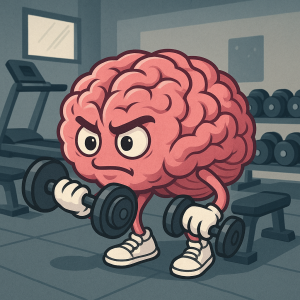
Tetris Isn’t Just a Game: It’s a Brain Workout
Tetris isn’t just about stacking colorful blocks. It’s a test of your reaction time, visual processing, and pattern recognition. Studies have shown that playing Tetris can actually boost cognitive functions, improve spatial reasoning, and increase mental flexibility. Some researchers even say it can reduce stress.
And guess what? Learning a language — especially English — also depends on these same brain skills.
When you listen, read, or speak in English, your brain is constantly processing patterns, predicting outcomes, and fitting new words into old knowledge. In a way, learning a new language is like playing Tetris: the pieces fall fast, and you have to stay focused and make the right connections.
Language Is a Puzzle
Think of English as a language puzzle. Just like you arrange blocks in Tetris, you arrange words in sentences. You need to recognize which verb tense fits, which preposition connects, or which word “clicks” in the context. Sometimes it’s fast and fun. Other times, it feels like everything’s piling up at once.
But just like in Tetris, the more you play, the better you get.
Repetition builds fluency. Practice brings speed. And over time, what once felt difficult becomes automatic. That’s why vocabulary games, grammar challenges, and quick conversations are so important in your English journey: they build muscle memory for your mind.
From Blocks to Brains: Why Fun Matters
Tetris proves that learning through play works. It’s simple, addictive, and satisfying — just like a good English lesson can be. When you enjoy the process, your brain retains more. When you feel challenged (but not overwhelmed), you improve faster.
English should be engaging, visual, and dynamic — just like your favorite game. Whether it’s through quizzes, conversation, songs, memes, or even lessons inspired by video games, we make sure your brain stays active and your learning never stops falling into place.
Become an Apoller!
Aqui na Apollo Academy, a gente sabe que aprender inglês não precisa ser monótono. Pode ser estratégico, divertido e até viciante como uma boa partida de Tetris.
Quer encaixar o inglês na sua rotina de um jeito leve e inteligente? Fala com a gente e descubra o método perfeito pra você!
✈️🧳 Plan a Family Trip and Find Out What Kind of Tetris Piece You Are!
Planning a family trip feels just like a game of Tetris — trying to make everything (and everyone) fit perfectly! Are you the Easy to Fit type who goes with the flow? The Square Block who sticks to the plan no matter what? Or are you a total Chaotic Tool Falling to Pieces, turning every step into a dramatic adventure?
Answer these 10 questions about your travel style, decision-making, and ability to survive family chaos — and we’ll reveal what kind of Tetris piece matches your vibe! 🎮✨
Ready? Let’s play! 🔥
How do you choose the destination?

Packing your suitcase is...

Someone suggests changing the plan...

How do you feel at the airport?

Thoughts on making stops along the way:

Kids start fighting in the car...

Food during the trip...

The hotel isn’t what you expected...

How do you manage schedules?

Who manages the money during the trip?

